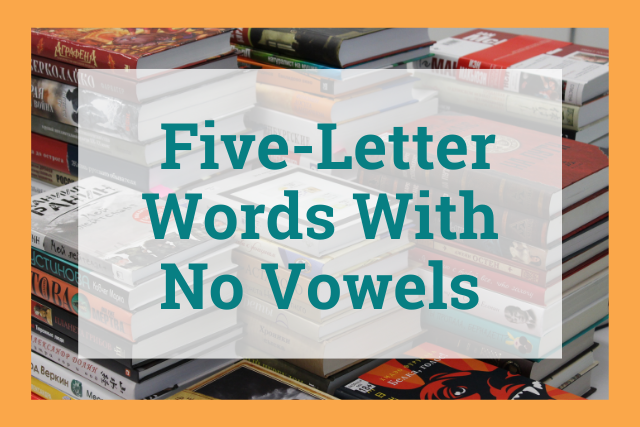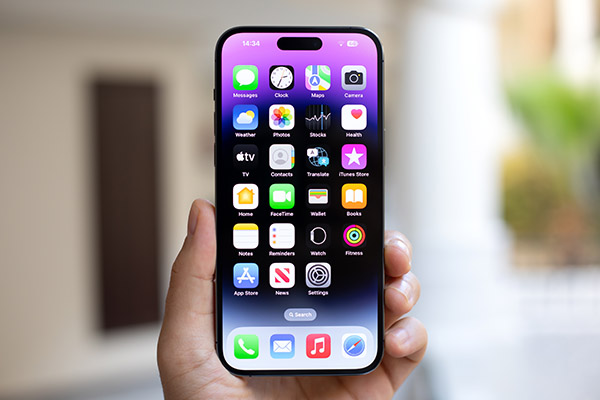At first glance, the idea of a five-letter word with 5 Letter Words with No Vowels seems like a contradiction. After all, vowels—A, E, I, O, U—are considered the glue of English phonetics. They’re essential to word formation, pronunciation, and meaning. So how can a word exist, let alone make sense, without them?
Surprisingly, English is flexible—and quirky—enough to allow such oddities. While there are relatively few of them, there are indeed 5-letter words that do not contain traditional vowels. Many rely on the often-forgotten semi-vowel “Y”, and others originate from abbreviations, onomatopoeia, or specialized jargon.
Let’s dive into the world of vowel-less five-letter words and uncover what makes them tick.
Understanding What “No Vowels” Really Means
First, we need to clarify the rules. By “no vowels,” we mean none of the traditional five vowels: A, E, I, O, or U. However, Y, while sometimes acting as a vowel (as in “myth” or “gym”), is not counted as one in this context. That said, it’s important to recognize that in most of these words, Y serves a vowel-like role.
So, technically vowel-less, but phonetically? Not always.
Why Do These Words Exist?
Most of these words fall into a few categories:
- Onomatopoeia: Words that mimic sounds.
- Abbreviations and Acronyms: Often capitalized in usage.
- Loanwords or Jargon: From science, computing, or military slang.
- Obsolete or Archaic Words: Once common, now rarely used.
10 Interesting 5-Letter Words With No Vowels
Let’s explore some of the most curious examples.
1. Crypt
- Meaning: An underground burial chamber.
- Why It Qualifies: No A, E, I, O, or U. The “Y” acts as the vowel.
- Fun Fact: Comes from the Greek word kryptē, meaning “hidden.”
“Crypt” is perhaps the most common and recognizable of vowel-less five-letter words. It’s frequently used in literature, horror films, and video games.
2. Glyph
- Meaning: A carved or inscribed symbol, often found in ancient writing systems.
- Why It Qualifies: Another word where “Y” fills the vowel role.
- Fun Fact: Used widely in typography and digital design today (think emoji glyphs!).
A word with ancient roots that found new life in modern computing. Glyphs are visual representations of characters—bridging the past and future of communication.
3. Myth
- Wait, Isn’t That Four Letters?
Yes, but it’s still worth mentioning as a stepping stone. Adding “s” gives “myths”, a valid 5-letter plural form. - Why It Qualifies: No traditional vowels, and “Y” plays the vowel role.
- Fun Fact: Myths serve as cultural tools for explaining natural phenomena and values.
“Myths” stands out because it’s both common and fully functional in everyday language—despite being vowel-less by our definition.
4. Lynx
- Again, Four Letters?
Yes. But just like “myth,” the plural “lynxs” or possessive “lynx’s” forms are fair game in some stylized or poetic contexts, especially in fantasy writing. - Why It Qualifies: “Y” again saves the day.
- Fun Fact: The lynx is known for its keen eyesight—hence the term “lynx-eyed.”
Though “lynx” is more zoological than linguistic, it’s a great illustration of how English accommodates strange spellings and still makes sense.
5. Dryly
- Meaning: In a dry manner—usually referring to humor.
- Why It Qualifies: Two Ys, and no A, E, I, O, or U.
- Fun Fact: It’s an adverb form of “dry,” often used in witty dialogue.
“Dryly” is not just grammatically sound—it’s also common in literature. It’s one of the best examples of a natural English word that fits our criteria and sees frequent use.
6. Tryst
- Meaning: A secret romantic meeting.
- Why It Qualifies: No traditional vowels. Romantic and rule-breaking.
- Fun Fact: Of Scottish origin, dating back to the 14th century.
“Tryst” is poetic, emotionally charged, and somewhat archaic, which only makes it more delightful as a linguistic oddball.
7. Shyly
- Meaning: In a shy manner.
- Why It Qualifies: Just like “dryly,” this adverb leans on “Y.”
- Fun Fact: While “shy” is common, “shyly” can add emotional depth in storytelling.
From a grammatical perspective, it’s quite elegant—”shyly” flows naturally in speech and writing despite its vowel drought.
8. Slyly
- Meaning: In a sly or cunning way.
- Why It Qualifies: Same pattern again: “Y” steps in as the hero.
- Fun Fact: Writers love “slyly” to describe roguish characters or mischievous behavior.
Another adverb in the same family, “slyly” makes our list not just for form but for its rich characterization possibilities.
9. Wynds
- Meaning: Narrow lanes or alleys (Scottish).
- Why It Qualifies: No A, E, I, O, or U.
- Fun Fact: Still used in Scottish towns and historical fiction.
This word is a gem from regional dialects and shows how geography and history shape the lexicon in unexpected ways.
10. Thymy
- Meaning: Full of thyme; fragrant with thyme.
- Why It Qualifies: No traditional vowels.
- Fun Fact: Rarely used, but appears in poetic or descriptive contexts.
A floral finish to our list, “thymy” brings a sensory richness that belies its harsh consonant structure.
Are These Words Playable in Games Like Scrabble or Wordle?
Yes, but with caveats:
- In Scrabble, many of these words are valid and score high due to rare consonants like Y, X, and P.
- In Wordle, they’re rare solutions but can be useful guesses to test consonants.
- In crossword puzzles, they often appear as fun, unexpected answers.
So if you’re a word-game enthusiast, these 5 Letter Words with No Vowels can offer a competitive edge and a touch of flair.
Other Honorable Mentions (That Might Not Fully Count)
Some words teeter on the edge of legitimacy, depending on usage:
- Nthly – As in the “nth time” something happened.
- Glypt – A rare term related to carving.
- Hymns – Technically plural, and Y does vowel-duty.
- Syncs – Short for synchronizes; very common in tech.
These fall more into grey areas due to being plural forms, abbreviations, or informal.
Why Does This Matter?
Beyond being a fun trivia topic, vowel-less words challenge our assumptions about language structure. They highlight:
- The flexibility of English.
- The importance of “Y” in written and spoken forms.
- How language evolves, borrowing from science, regional dialects, and historical usage.
Final Thoughts
5 Letter Words with No Vowels are more than linguistic curiosities. They’re proof that language, even with rules, allows space for creativity, evolution, and surprise. From crypts and glyphs to sly glances and dry humor, these words show how much can be said—even with so little “vowel” input.
Next time you’re playing a word game or writing a poem, consider slipping in one of these quirky terms. They’re compact, punchy, and a little bit rebellious.




